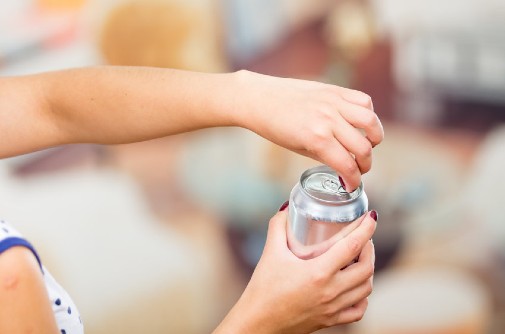Up to a third of UK children consume at least one energy drink a week, new research suggests
Posted on 7 February 2022
 The study found that in the UK, working-class children from the North of England drink more than any other group.
The study found that in the UK, working-class children from the North of England drink more than any other group.
In a study carried out by the University of York and University College London, researchers found evidence that children who drank energy drinks on five or more days per week were more likely to have low psychological, physical, educational and overall well-being.
The study analysed data on thousands of UK children, in addition to reviewing evidence on children’s consumption of energy drinks from around the world. The findings suggest that boys drink more than girls, and that in the UK, working-class children from the North of England drink more than any other group.
Wellbeing
An average 250 ml energy drink contains a similar amount of caffeine to a 60 ml espresso. The European Food Safety Authority proposes a safe level of 3 mg of caffeine per kg of body weight per day for children and adolescents. Many energy drinks also contain other potentially active ingredients, such as guarana and taurine, and more sugar than other soft drinks.
Lead author of the paper, Claire Khouja, from the Centre for Reviews and Dissemination, University of York, said: “While more research is needed to track the effects of energy drinks on children who drink them, our research has uncovered consistent evidence of links between the regular consumption of these drinks and harmful effects on children’s overall wellbeing."
Education
“Our study also indicates that children who are better informed about the contents of energy drinks, drink less, suggesting that education could reduce drinking.”
Following the consultation of which the study is part, in July the Government announced plans to introduce a ban on energy drink sales to children.
Consumption and effects of caffeinated energy drinks in young people: an overview of systematic reviews and secondary analysis of UK data to inform policy is published in BMJ Open. The study was carried out by NIHR Policy Research Programme Reviews Facility, a collaboration between the University of York, University College London and the London School of Hygiene and and Tropical Medicine.
Explore more news

Sodium channels in breast cancer cells a promising target for future treatments, study reveals
Thursday 25 July 2024

Cooling the classroom: University of York researchers to investigate UK schools’ responses to hot weather
Wednesday 24 July 2024

Hunter-gatherers kept an 'orderly home' in the earliest known British dwelling, study shows
Tuesday 23 July 2024

Study uses Game of Thrones to advance understanding of face blindness
Tuesday 23 July 2024

York academic contributes to new report on men’s health which reveals disparities between most and least deprived areas in the UK
Wednesday 17 July 2024
Media enquiries
About this research
Consumption and effects of caffeinated energy drinks in young people: an overview of systematic reviews and secondary analysis of UK data to inform policy is published in BMJ Open. The study was carried out by NIHR Policy Research Programme Reviews Facility, a collaboration between the University of York, University College London and the London School of Hygiene and and Tropical Medicine.
Explore more of our research
